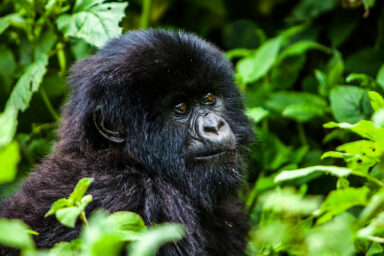From Printable DNA to Bird-Bashing Towers: 15 Looming Biodiversity Issues
PICKS are stories from many sources, selected by our editors or recommended by our readers because they are important, surprising, troubling, enlightening, inspiring, or amusing. They appear on our site and in our daily newsletter. Please send suggested articles, videos, podcasts, etc. to picks@whowhatwhy.org.
|
Listen To This Story
|
From Printable DNA to Bird-Bashing Towers: 15 Looming Biodiversity Issues (Maria)
The author writes, “Every year, a team led by the Cambridge University conservation biologist William Sutherland conducts a horizon scan to identify the top emerging technological, political, economic and related shifts most likely to have a substantial effect on biodiversity around the world in the year ahead. Here are 15 of the key issues looming over the natural world in 2024.”
Why Conservatives Shouldn’t Fear Ranked Choice Voting (Al)
The author writes, “If you believe some critics, ranked choice voting (RCV) is a partisan Democratic scheme cooked up to ‘rig’ American elections and handicap conservative and Republican candidates. These claims are bunk. RCV is a modest procedural reform aimed at somewhat improving the match between voter preferences and electoral outcomes, with implications that are neutral as between left and right. It’s part of a category of electoral reforms that have drawn interest for centuries from scholars, very much including free‐market economists.”
The Inevitable Fall of Putin’s New Russian Empire (Sean)
From Foreign Policy: “The Russian Federation is the product of the Soviet empire’s collapse, just as the Soviet Union was the product of imperial Russia’s collapse. Looking at the long history of empires, it’s not at all surprising that today’s Russia has embarked on a project of re-imperialization—the attempt to recreate as much of its former empire as it can. Equally unsurprisingly, Russia’s effort will fail.”
See No Evil: Why Does the Chicago Police Department Tolerate Abusive Racists in Its Ranks? (Laura)
From The Intercept: “Whatever the merits of monitoring officers’ political affiliations and social media activity — both of which raise possible First Amendment issues — the [Chicago Police Department] has failed to make use of the most powerful tool at its disposal for the purpose of identifying white supremacists on the force: pattern analysis of citizen complaints. Such analysis can reveal racist behavior that is in plain sight, and it can illuminate the systemic conditions that allow racists to operate with impunity as police officers. For both purposes, the 25-year career of Chicago police sergeant [Raymond] Piwnicki, who has no known affiliation with extremist organizations, is instructive.”
Trans People Are Finding Safe Haven in an Unexpected Place: Upstate New York (Russ)
The author writes, “The entirety of New York is a self-declared sanctuary state for trans individuals, but the obvious destination of New York City is too expensive and overwhelming to be a realistic option for many of those looking to relocate. ‘Something about that seems to be driving people to reach out to Rochester,’ said [the] president of the Rochester Rainbow Union. … To the outside eye, upstate New York is often seen as little more than a sea of reliably red counties — indeed, much of the state outside New York City voted for Donald Trump in 2020. But floating in that sea is a handful of blue islands: the cities of Albany, Syracuse, Buffalo, and Rochester. In all four places, the Democratic bent translates to inclusivity.”
Jeff Bezos, Elon Musk Say Human Population Not Nearly Big Enough (Reader Jim)
From Fortune: “While the two compete in the space business — Bezos owns Blue Origin while Musk has SpaceX — they agree on certain aspects of humanity’s future. … Asked what he hoped for humanity’s future in outer space hundreds or thousands of years from now, [Bezos] replied: ‘I would love to see, you know, a trillion humans living in the solar system. If we had a trillion humans, we would have at any given time a thousand Mozarts and a thousand Einsteins… Our solar system would be full of life and intelligence and energy.’”




